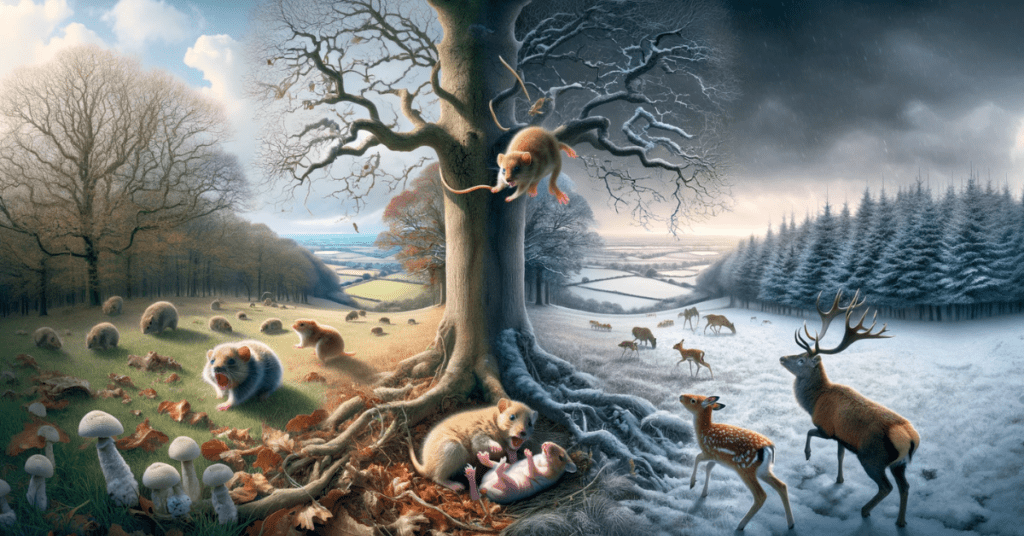𝐖𝐢𝐧𝐭𝐞𝐫 𝐈𝐬𝐧’𝐭 𝐂𝐨𝐦𝐢𝐧𝐠: 𝐓𝐡𝐞 𝐒𝐞𝐚𝐬𝐨𝐧𝐚𝐥 𝐒𝐡𝐮𝐟𝐟𝐥𝐞 𝐢𝐧 𝐭𝐡𝐞 𝐀𝐧𝐢𝐦𝐚𝐥 𝐊𝐢𝐧𝐠𝐝𝐨𝐦

Recent observations by the National Trust highlight the profound impact of climate change on wildlife. Dormice are emerging early from hibernation due to shorter winters, expending extra energy during a period they’re typically inactive. Similarly, red deer face a new challenge with calving seasons delayed, leading to fawns being born closer to winter, which compromises their development and ability to survive the cold months.

These shifts signify more than just behavioral anomalies; they reflect a broader ecological disruption. Fewer cold snaps mean tree pests like the oak processionary moth are less controlled, posing a threat to forest health. The changing climate is also affecting flora, with early budding and altered flowering times disrupting ecosystems.
These ecological imbalances underscore the urgency of addressing climate change. At GITEX Impact, we’re dedicated to exploring innovative solutions to these environmental challenges. Join us in our efforts to understand and combat the effects of climate change on our natural world.
Read the full article for more insights into these environmental shifts and our response strategies.
GITEX Impact’s Role in a Sustainable Future
At GITEX Impact, we recognize the critical nature of these challenges and are committed to fostering solutions that address these global risks. Our platform serves as a nexus for dialogue, innovation, and action, bringing together leaders and experts to drive sustainable development and resilience.
Join us at GITEX Impact 2024 as we delve into these issues, seeking collaborative and innovative approaches to shape a sustainable and equitable future for all.
Discover more and contribute to this global endeavor: Book a Stand | Register Visitor Interest
